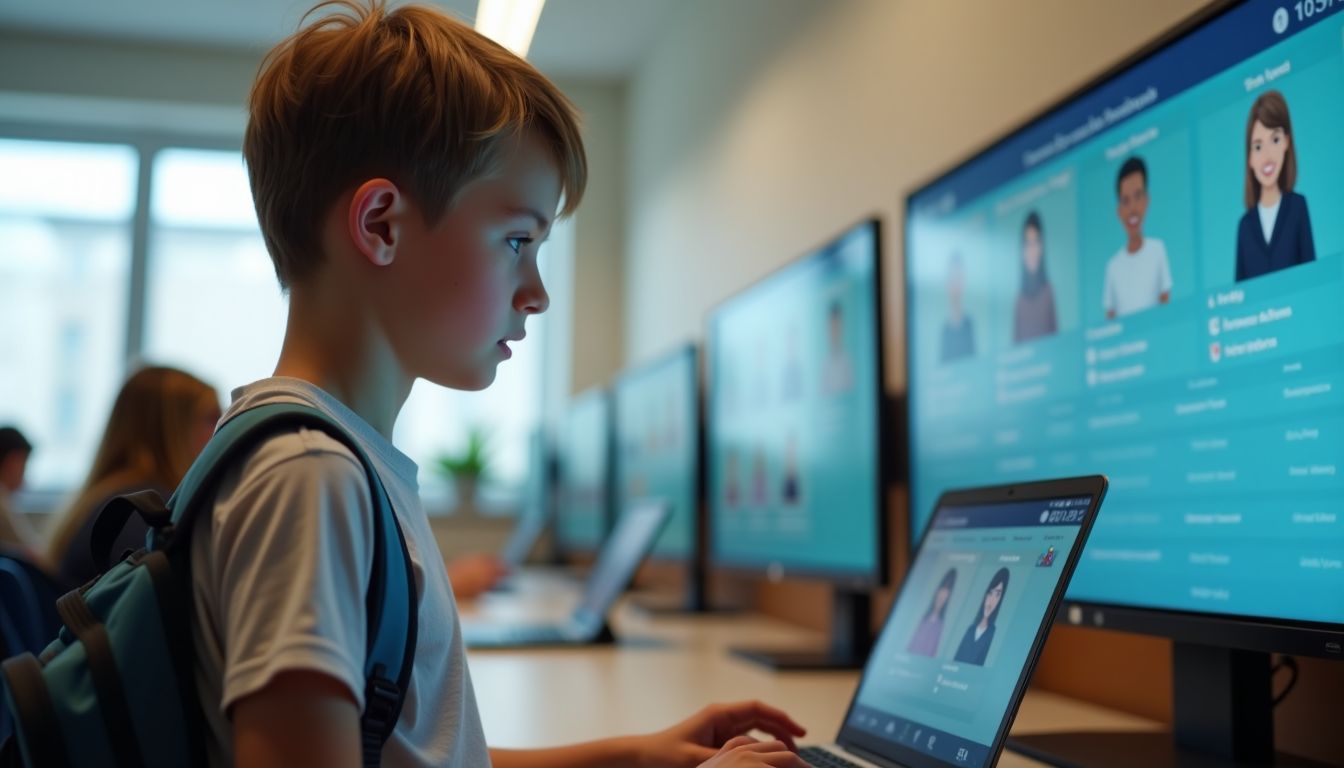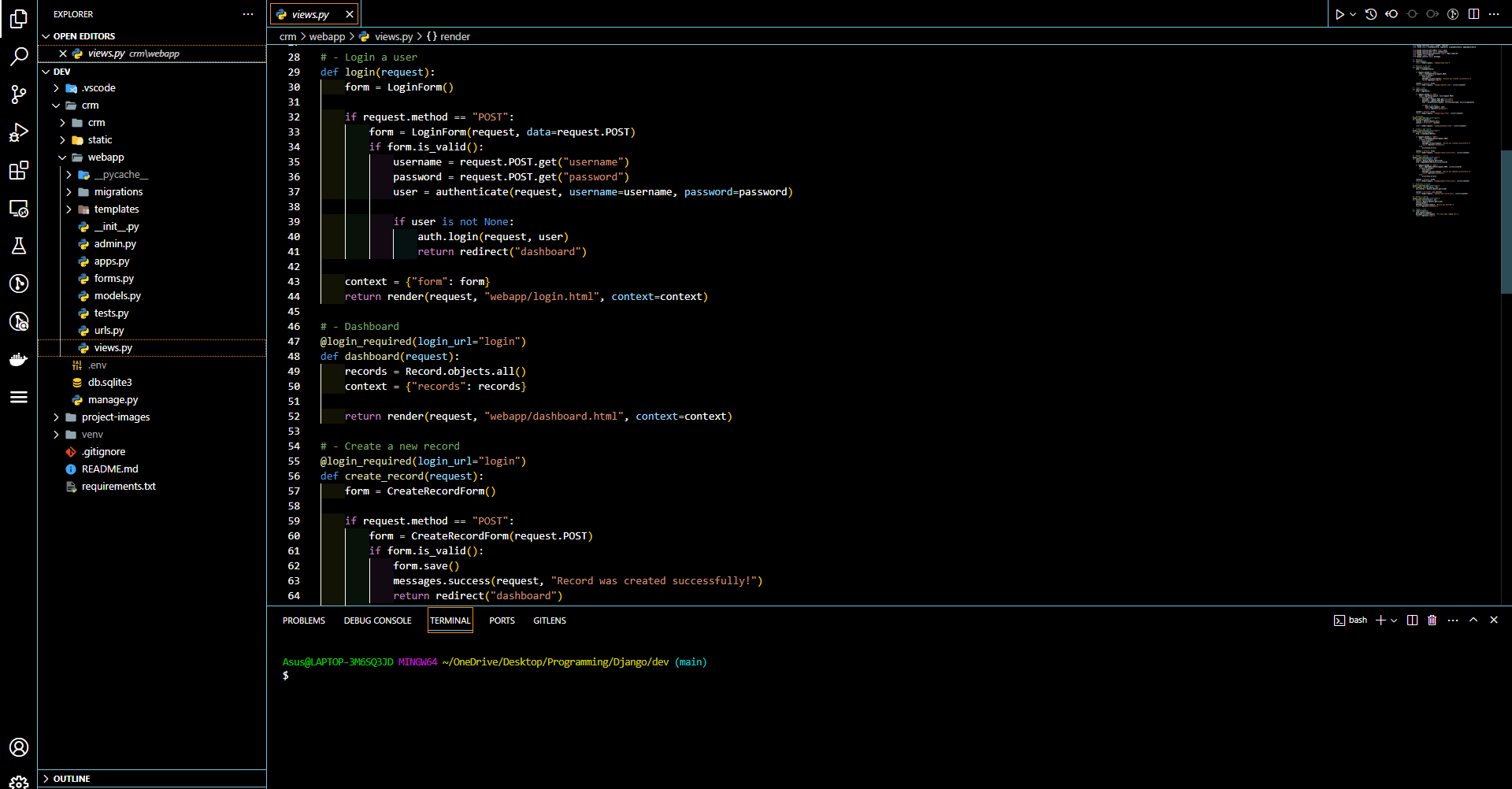Finding the right tools for school can be tough. UNESCO supports using Artificial Intelligence for students. This blog shows how AI helps in learning. Keep reading to find out more.
Exploring AI in Education

AI is transforming education through interactive learning platforms and virtual assistants that assist in classroom management. These tools are shaping a new era of digital learning, enhancing student engagement, and providing personalized educational experiences tailored to each learner’s needs.
AI-powered Learning Platforms
AI-powered learning platforms change how students learn. They use special algorithms to look at data and make predictions. These systems can do tasks on their own, suggest courses based on what you’re good at, and show data in real time.
They have smart helpers, AI that can create content, and coaches just for learners.
Some of the top names in this area include 360Learning, Docebo, Sana Labs, and EdApp. For example, Docebo can search deeply because of AI and tag things by itself. EdApp is great for learning on phones and makes making courses easy with its AI Create tool.
Virtual Assistants in Classroom Management
Moving from AI-powered learning platforms, virtual assistants play a big role in classroom management. They help by handling tasks that take up a lot of time. For example, they can set up schedules and send out reminders.
This lets teachers focus on teaching instead of admin work.
Virtual assistants also make learning better for students. They answer questions right away and help with language learning, tutoring, and giving feedback on assignments. However, there are some issues like keeping information private and making sure teachers know how to use them properly.
How AI Enhances Student Learning
AI enhances student learning by providing personalized educational experiences and engaging students through interactive tools. It customizes teaching toward individual needs, thereby enhancing overall student engagement and academic performance.
Personalized Learning Experiences
AI personalizes learning by adjusting lessons to match each student’s requirements. Students learn at their unique pace. Take, for instance, DreamBox, which adjusts math lessons for each learner, preventing feelings of being forgotten or apathetic.
Adaptive learning technology modifies instruction based on a student’s performance. It provides a personalized curriculum that assists students where they require more reinforcement.
This enhances the efficiency and enjoyment of learning.
AI transforms standard education into a personalized experience for each learner.
Improved Engagement Through Interactive Tools
Moving from personalized learning experiences to improved engagement through interactive tools, it’s essential to understand how AI can promote enhanced student participation. By using interactive educational tools and adaptive learning technology, AI enables student engagement and motivation.
With individualized tutoring and personalized learning activities, artificial intelligence creates a dynamic environment that captures students’ interest and encourages active involvement in the learning process.
Choice boards generated by AI allow students to select their preferred learning methods, providing a customized approach that enhances student interaction and enthusiasm for learning.
AI-powered student engagement involves various strategies aimed at enhancing the overall educational experience. Through the integration of interactive learning games and other forms of adaptive technology, artificial intelligence significantly contributes to maximizing student participation and promoting an enriched academic journey.
Real-World Applications of AI in Education
AI is transforming educational toys, fostering the development of cognitive skills. Chatbots are also being integrated into education to offer personalized learning experiences.
Development of Cognitive Skills with AI Toys
AI toys play a vital role in fostering cognitive skills for young children. These interactive educational toys leverage artificial intelligence to enrich early childhood learning through play.
By promoting problem-solving, teamwork, and critical thinking, AI toys bolster cognitive development in preschoolers. Research indicates that children’s engagements with these AI-powered toys can enhance creativity, emotional intelligence, and collaborative investigation skills.
By offering interactive learning experiences customized to improve cognitive abilities, AI toys offer an efficient method for young learners to cultivate essential skills while enjoying themselves.
AI in Creating Educational Chatbots
Artificial intelligence (AI) plays a vital role in developing educational chatbots, providing personalized support to students and staff in educational institutions. These chatbots utilize natural language processing and machine learning to provide customized assistance, enriching the student experience.
An extensive review of 53 articles on chatbots in education underscored their potential benefits and challenges, laying the groundwork for future research and development in this area.
This technology has practical applications, serving as a valuable tool in modern educational settings.
Chatbots powered by AI are tailored to address the specific needs of students and educators, offering automated systems that facilitate student support through conversational interfaces.
Their integration into educational environments reflects an innovative approach to enhancing engagement and providing streamlined access to information within academic institutions.
Conclusion
As we conclude, keep in mind that AI in education aims to make learning more personalized and engaging for students. UNESCO is dedicated to making AI technology accessible to all students, regardless of their background and geographical location.
With a human-centered approach, the objective is to ensure that technological advancements benefit everyone and promote equity in education. As AI continues to develop, it’s essential for policymakers, educators, and parents to embrace its potential in enhancing student learning experiences while being mindful of ethical considerations along the way.
FAQs
1. What is artificial intelligence for students?
Artificial intelligence for students includes tools and resources that help enhance learning experiences. These technologies can assist with studying, research, and skill development.
2. How can AI tools improve education?
AI tools improve education by providing personalized learning paths. They help students understand complex topics at their own pace and offer instant feedback on assignments.
3. Are there specific AI resources for different subjects?
Yes, many AI resources target various subjects like math, science, or language arts. These tailored tools provide relevant exercises and support to strengthen understanding in each area.
4. Can teachers use AI in the classroom?
Absolutely! Teachers can use AI to track student progress, create lesson plans, and identify areas where students may need more help. This makes teaching more effective and engaging.
References
- https://360learning.com/blog/ai-learning-platforms/
- https://iste.org/ai
- https://www.researchgate.net/publication/377188367_Chatbots_and_Virtual_Assistants_in_Education_Enhancing_Student_Support_and_Engagement
- https://gdcitsolutions.com/resources/tech-articles/artificial-intelligence-in-education/
- https://www.ascd.org/el/articles/using-ai-to-fuel-engagement-and-active-learning
- https://www.fxmweb.com/insights/ai-in-education-improving-student-engagement-and-outcomes.html (2024-08-14)
- https://www.researchgate.net/publication/382400149_Cognitive_Skills_Development_through_AI_Tools_Critical_Thinking_and_Pedagogics_Design_in_Modern_Education (2024-07-22)
- https://www.sciencedirect.com/science/article/pii/S2666920X21000278
